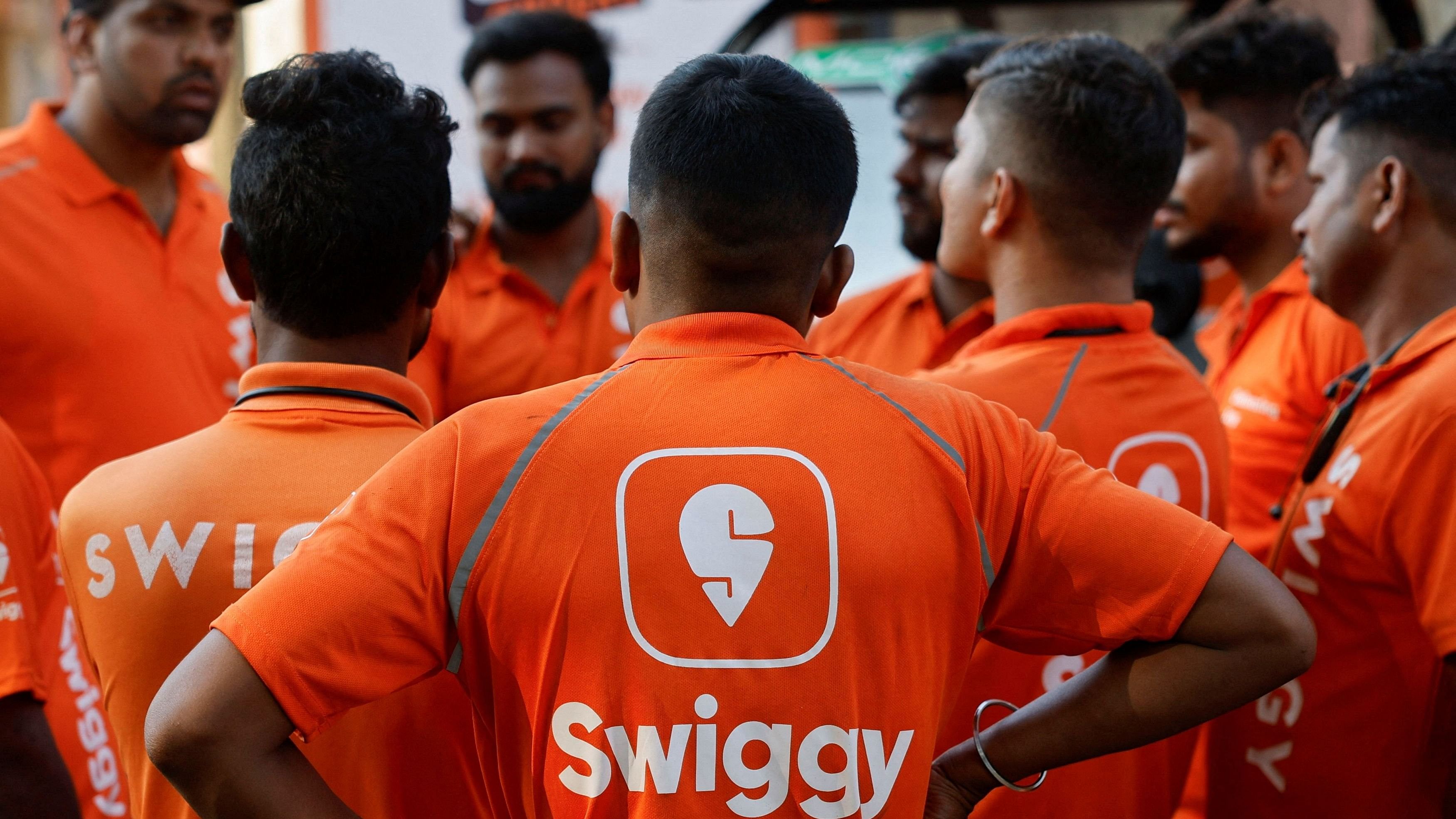
Swiggy gig workers
Credit: Reuters Photo
Mumbai: Food delivery app Swiggy on Wednesday launched a Rs 11,330-crore initial share sale, asking investors to take a pie of Indian middle class' rising propensity of online ordering.
The company, which is present in over 650 cities and towns of the country, is launching the initial public offering (IPO) amid heightened concerns on urban demand slump, and the management stressed that it is unaffected by the broader trends in the economy.
"We are also reading about it, but we are not seeing that yet in the business... So far, we have not seen the impact of demand on our business," its chief financial officer Rahul Bothra said.
The issue comes amid a series of IPOs in the recent past including South Korean car maker Hyundai's mega Rs 28,000-crore issue. It will make Swiggy the second major food delivery app after Zomato to go public.
Bothra said it is possible that the company which claims to have 14 million users serves only a small part of the consumer base, unlike fast moving consumer goods companies voicing concerns on growth which serve a very broad set of consumers.
Stating that so far, the company is feeling good about the demand it is serving, he said, Swiggy will be watching the space "closely". The three years to end-FY24 saw a handsome growth.
Just like its peer Zomato, the company is also experiencing a faster growth in its quick commerce business and the newest addition already contributes 40 per cent to the revenues of the company, a senior official said, adding that it sees this space overtaking the legacy food delivery business soon because of the higher growth in it.
The company management said its growth is primed on the changing consumption patterns, especially among the Gen Z, and added that it is hoping to beat the market growth for many years.
Group chief executive and managing director Sriharsha Majety was tight-lipped on the market share against its close rival Zomato, which is also listed, and answered a poser on higher valuation against peer, saying one must look at the opportunity ahead.
The company on Wednesday announced a price band of Rs 371-390 for the IPO, which will open from November 6-8. Investors will have to subscribe to a minimum of 38 shares and in multiples of 38 thereafter.
At the upper end of the price band, it is aiming to garner up to Rs 11,330 crore from the issue, which will comprise fresh issue of shares wroth Rs 4,490 crore.
The company plans to use the proceeds to repay a debt of up to Rs 250 crore, invest in dark stores used by the quick commerce business, investments in technology and cloud infrastructure, branding and also for acquisitions, as per the red herring prospectus filed with the markets regulator.
The secondary share includes exits or partial exits by venture capital fund Accel India, Tencent Cloud Europe and Alpha Wave Ventures, and the early backers have invested between Rs 11.17 and Rs 178.90 apiece, depending on when they entered the company, as per the disclosures made.
The 2014-founded company has never had a full year of profits, but showed an operating profit in the June quarter. It can be noted that concerns were expressed about investor unease while investing in new-age companies in the past in light of their IPOs.
Majety said the company is not "paranoid" about this facet and added that going public is also an opportunity to broaden the stakeholders.
When asked about the regulatory risks given the frequent threats from physical retailers and also the government's stance against such companies, Bothra said the company has explained the gains to the broader ecosystem to regulators over the years like creating jobs for over a lakh delivery partners in the last one year.